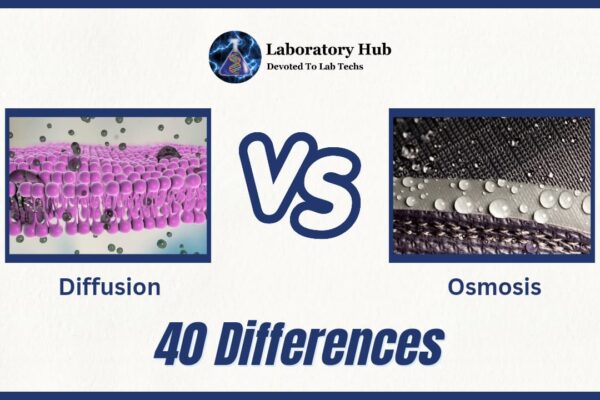What are the benefits of physiotherapy?
Physiotherapy, also known as a physical remedy, is a healthcare profession that focuses on the forestallment and treatment of movement diseases, injuries, and disabilities.
It involves the use of a variety of ways, similar to exercise, primer remedy, and electrotherapy, to ameliorate the physical function and quality of life of individuals who suffer from a wide range of conditions.
In this blog, we will explore some of the numerous benefits of activity and why it’s a precious tool for perfecting overall health and well-being.
Alleviates Pain and Inflammation
One of the primary benefits of activity is that it can help palliate pain and inflammation. This is achieved through a variety of ways, similar to massage, heat remedy, and ultrasound. These ways can help increase blood inflow to the affected area, which can help reduce swelling and inflammation. Also, physiotherapists can educate cases of exercises and stretches that can help palliate pain and ameliorate mobility.
Helps Improve Joint Mobility and Inflexibility
Another benefit of activity is that it can help ameliorate common mobility and inflexibility. This is particularly important for individuals who suffer from conditions similar to arthritis or other degenerative common conditions. Physiotherapists can work with cases to develop exercise programs that can help increase the range of stir and reduce stiffness. This can help individuals perform everyday conditioning more fluently and with lower pain. In order to improve neck stiffness, you can also use neck pain relief products.
Helps with Balance and Coordination
Activity can also help individuals ameliorate their balance and collaboration. This is particularly important for aged grown-ups who are at threat of cascade. Physiotherapists can develop exercises and conditioning that can help ameliorate balance and reduce the threat of cascade. Also, physiotherapists can work with individuals who have suffered a stroke or other neurological condition to help ameliorate their collaboration and mobility.
Improves Posture and Body Alignment
Poor posture and body alignment can lead to a variety of problems, similar to reverse pain, neck pain, and headaches. Physiotherapy can help ameliorate posture and body alignment through the use of exercises and stretches that target the muscles that support the chine. also, physiotherapists can educate individuals on how to maintain good posture throughout the day, which can help with pain and discomfort.
Helps with Muscle Strengthening and Conditioning
Another benefit of activity is that it can help with muscle strengthening and exertion. This is particularly important for athletes and individuals who are recovering from an injury. Physiotherapists can develop exercise programs that can help strengthen and condition muscles, which can help ameliorate overall physical function and performance.
Helps with Injury Prevention and Rehabilitation
Activity can also help with injury forestallment and recuperation. Physiotherapists can work with athletes and other individuals to help with injuries by relating and correcting imbalances in the body. Also, physiotherapists can help individuals recover from injuries by developing recuperation programs that concentrate on restoring mobility, strength, and function.
Also Read: Why are transitions important in life?
Can Help Reduce the Need for drug and Surgery
Activity can also help reduce the need for drugs and surgery. By using a variety of ways, similar to exercise and primer remedies, physiotherapists can help palliate pain and ameliorate physical function without the need for drugs or surgery. Also, activity can help individuals recover from injuries or conditions that might otherwise bear surgery.
Improves Overall Physical Function and Performance
Eventually, one of the most significant benefits of activity is that it can ameliorate overall physical function and performance. By perfecting mobility, strength, and inflexibility, activity can help individuals perform everyday conditioning more fluently and with lower pain. Also, activity can help athletes and other individuals improve their physical performance by developing exercise programs that target specific areas of the body.
In conclusion
Physical activity is a precious tool for perfecting overall health and well-being. It offers a range of benefits, including pain relief, better common mobility and inflexibility, better balance and collaboration, better posture and body alignment, muscle strengthening and exertion, injury forestallment and recuperation, reduced need for drug and surgery, and better physical function and performance. These benefits make the activity an essential part of any healthcare plan, whether you’re recovering from an injury, managing a habitual condition, or simply looking to ameliorate your overall physical health.
Frequently Asked Questions (FAQs)
Physiotherapy is a form of healthcare that uses physical methods, such as exercises, massage, and manual therapy, to treat injuries, disabilities, and pain.
Physiotherapy can help improve mobility, reduce pain, prevent injuries, and enhance overall physical function and performance.
Physiotherapy can treat a wide range of conditions, including back pain, arthritis, sports injuries, stroke, and post-surgery rehabilitation.
Yes, physiotherapy can benefit people of all ages, from newborns to the elderly.
The length of a physiotherapy session can vary depending on the individual’s needs, but a typical session usually lasts between 30 minutes to an hour.
Sometimes you need a referral to see a physiotherapist. However, many physiotherapy clinics accept self-referrals.
Yes, physiotherapy can be an effective treatment option for chronic pain by addressing the underlying cause and improving overall function.
Physiotherapy may involve a combination of techniques, such as manual therapy, exercise prescription, electrotherapy, and education.
The length of time it takes to see results from physiotherapy can vary depending on the individual’s condition and the severity of their symptoms. However, many people start to see improvements within a few weeks.
Yes, physiotherapy can help prevent injuries by identifying potential risk factors and developing targeted exercise programs to improve strength, flexibility, and balance.
Many insurance plans cover physiotherapy, but coverage may vary depending on the type of plan and the specific services needed.
Yes, physiotherapy can help with mental health by reducing stress and anxiety, improving mood, and promoting overall well-being.
During a physiotherapy session, the therapist will assess your condition, develop a treatment plan, and guide you through exercises and other techniques to improve your physical function.
In general, physiotherapy is a safe and non-invasive treatment option. However, some people may experience mild discomfort or soreness after a session.
To find a qualified physiotherapist, you can ask for a referral from your doctor or search for a licensed therapist through a professional organization, such as the American Physical Therapy Association.







